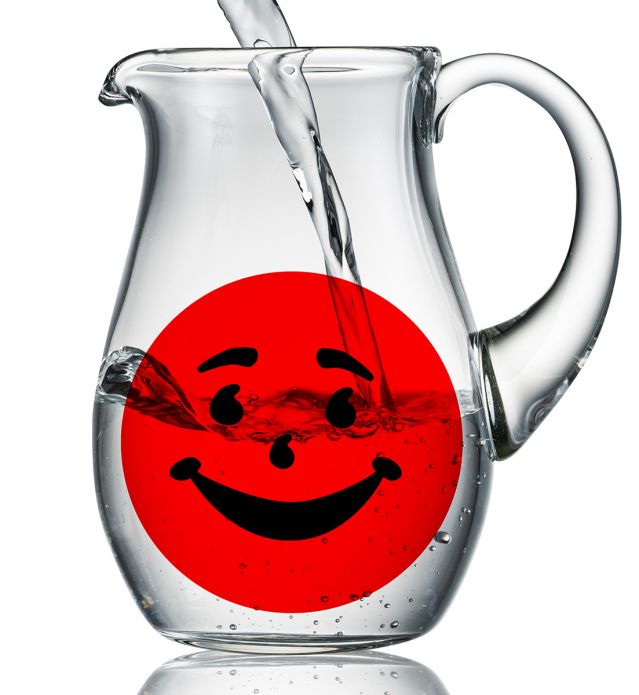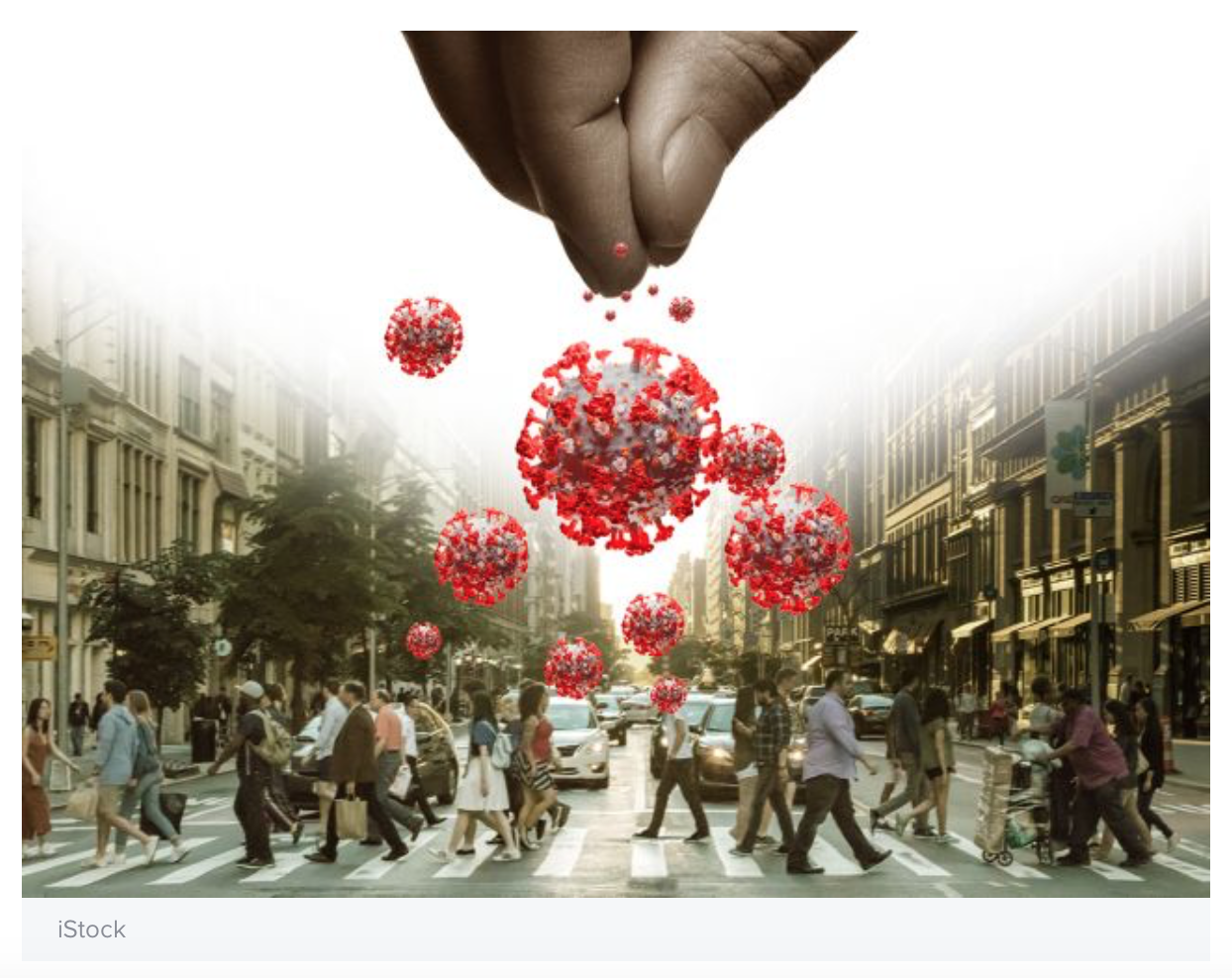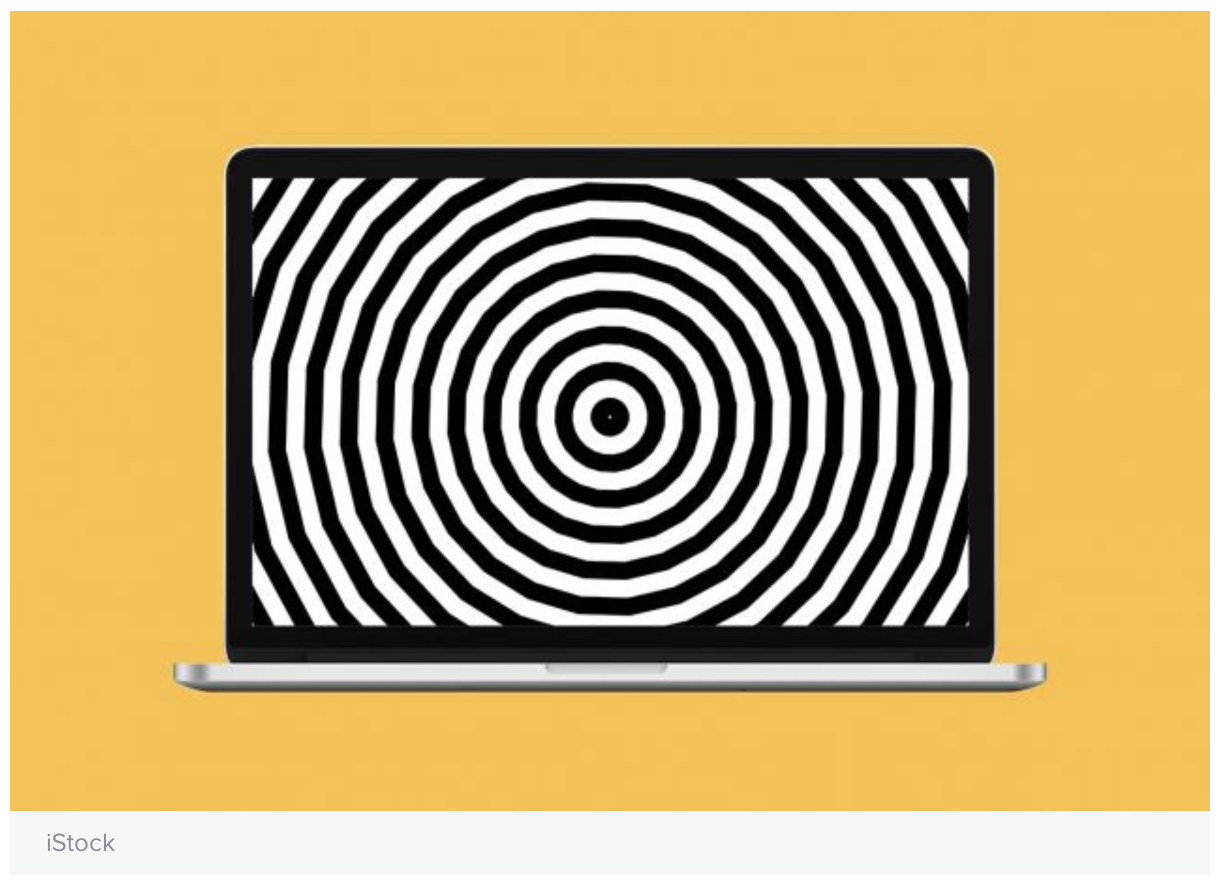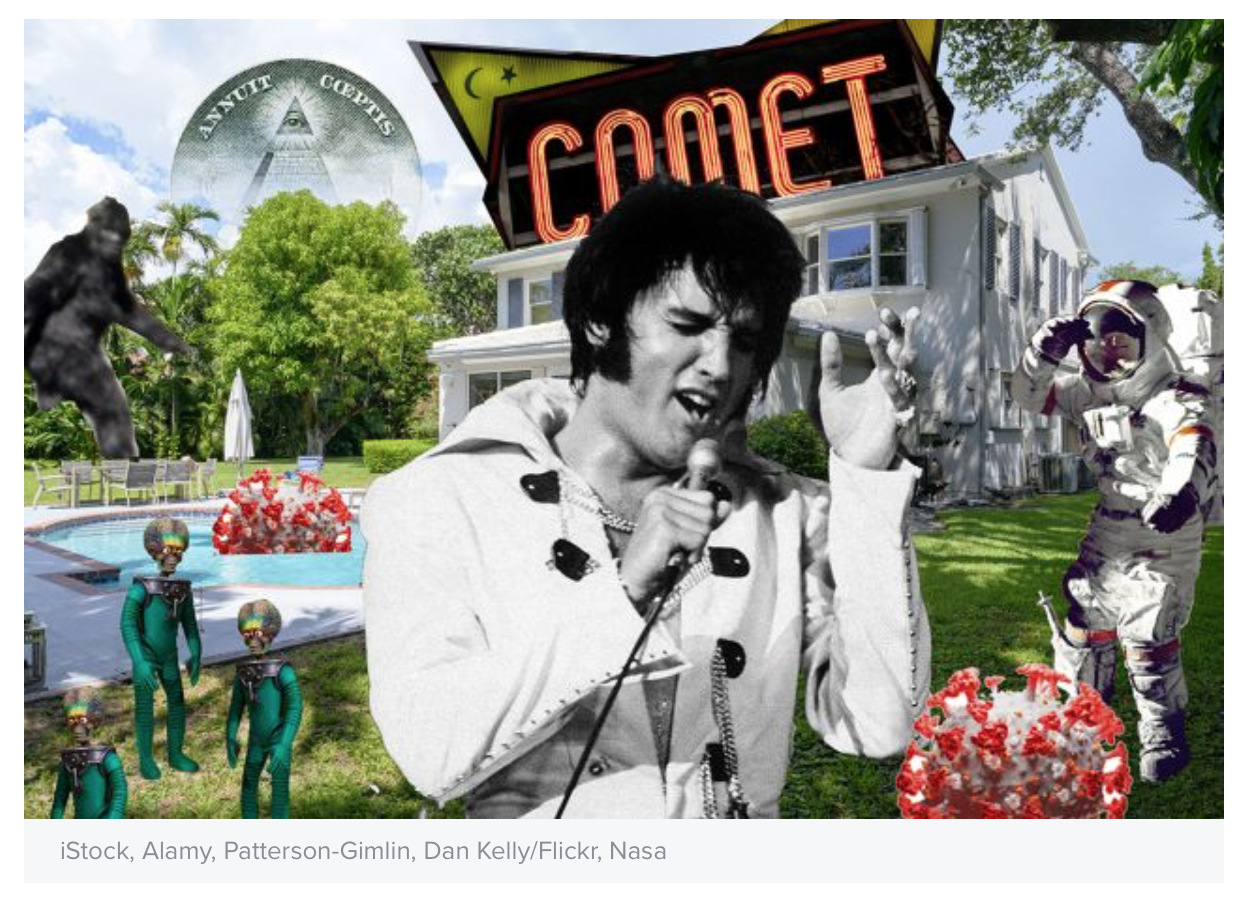Release time: 2020-12-03 14:31
The Mind of a Conspiracy Theorist
Why are so many people drawn to conspiracies in times of crisis?
By now, scientists have roundly debunked the theory that the coronavirus was created in a lab. But that hasn’t stopped nearly 30 percent of Americans from believing it, according to a recent Pew survey—and many of these believers have made the leap from that premise to the theory that a powerful villain unleashed the virus to control the population. (Billionaire philanthropists George Soros and Bill Gates are on the short list, although conspiracy theorists aren’t ruling out the Clintons.) When the Black Lives Matter movement gained momentum in the midst of the pandemic, another wave of believers embraced conspiracy theories linking the two phenomena, including the rumor that Soros had instigated the protests as the next step in his path to world domination.

Both Covid-19 and systemic racism pose real life-or-death dangers. So why are so many people becoming preoccupied instead with threats that have no grounding in reality? It’s partly because of the magnitude of the real threats, psychologists say. Studies show that conspiracy theories tend to snowball during times of crisis, when fear is rampant and clear explanations are in short supply. They appeal in part because they offer a straightforward narrative and someone to blame. But researchers are starting to pay more attention to these theories, and the motives and mechanisms that drive them, as it becomes clear that they aren’t a harmless method for coping with the unknown. They can have truly damaging consequences in the real world.
At the core of every conspiracy theory is the idea that a powerful person, or group of people, is secretly hatching a dastardly scheme. Almost anything that makes headlines can spawn these theories, especially when there’s room for confusion about what really happened. In June, when a 75-year-old man was hospitalized after police pushed him to the ground during a Black Lives Matter protest, some claimed he was in fact a paid crisis actor or an “antifa provocateur"—a theory that gained traction when the president posted about it on Twitter. Around the same time, an apparent increase in fireworks displays in New York and other cities sparked similarly baseless rumors that the police were setting them off in an attempt to wage psychological warfare on protesters.
The coronavirus pandemic is a particularly fertile breeding ground for such thinking, says Roland Imhoff, a social psychologist at Germany’s Johannes Gutenberg University: It’s terrifying, not well understood, and happening on a massive scale. And in the face of pandemic-level panic, our minds have a tendency to seek explanations that match the intensity of our feelings. “To say that the whole world has come to a halt because a teeny-weeny virus jumped from a bat to another animal and then to a guy in a Chinese market seems too insignificant an explanation,” Imhoff says. “But a conspiracy theory that has thousands of people in cahoots? That seems more proportional.”
Past health crises, from the AIDS epidemic to the Zika outbreak, gave rise to theories eerily similar to those circulating today about coronavirus. At times like these, conspiracy theories are more appealing than the truth because they offer the possibility of control, Imhoff says. We can thwart an evil plan, at least hypothetically. But we can’t thwart the unseen forces of nature.
“Conspiracy theories make a very tempting promise: Just stop the villain and you get your life back. That’s what we all want,” he says. “It’s a charming narrative that’s very easy to buy into: Just stop Bill Gates from polluting the airwaves with 5G and we can go out again and our kids can go back to school.”
It’s no surprise that so many people are currently in thrall to this narrative. But studies show that some people are especially prone to these beliefs, even without the motivating uncertainty of a global health crisis. Researchers have found that this “conspiracy mentality” correlates with particular personality traits, including low levels of trust and an increased need for closure, along with feelings of powerlessness, low self-esteem, paranoid thinking, and a need to feel unique.
“It’s a worldview that believes nothing happens without a reason and that there are sinister forces at work behind the curtain,” Imhoff says. “It’s a fairly stable worldview, so it doesn’t really matter what happens—that will be their interpretation.”
Still, roughly half of the U.S. population believes in at least one political or medical conspiracy theory, so it’s hard to define these beliefs as abnormal, says UCLA psychiatrist Joseph Pierre. “One thing to emphasize is that we all have needs for closure, uniqueness, and the like. It’s more a matter of some of these needs or biases being stronger among those who believe in conspiracy theories,” he says.
Conspiracy thinking can also be attributed to external forces, including racial and social inequity, that erode our trust in authority figures, Pierre argues. When people lose their faith in official accounts, their search for answers often takes them “down the rabbit hole,” he says. “Most ‘conspiracy theorists’ aren’t theorizing so much as they’re looking for answers and finding ones that resonate with the mistrust that got them searching in the first place.”

Real Dangers
On its own, belief in conspiracies isn’t inherently dangerous or wrong, psychologists say. After all, sometimes powerful people really are hatching secret schemes. If Edward Snowden hadn’t suspected that top U.S. intelligence officials were engaged in a massive wiretapping conspiracy, for example, he couldn’t have exposed the NSA’s very real covert surveillance program.
Skepticism toward people in power is part of a healthy democracy, Imhoff argues. It enables the checks and balances that prevent abuses and ultimately protect the public. But people with a conspiracy mindset distrust nearly everyone—especially experts. And that becomes problematic when it leads to an erosion of credibility that puts scientists on the same level as someone who just posted a video on YouTube.
“If I trust the scientist and you trust the guy on YouTube, there’s no common ground between us. And having a shared understanding of reality is essential to society. Without it, there is no truth anymore. That’s a huge danger,” Imhoff says.
Even more troubling, conspiracy thinking is correlated with a tendency toward violent thoughts and fantasies, and to some degree with real violence. University of Miami political scientist Joseph Uscinski found that people who were generally inclined to believe in conspiracy theories were twice as likely as nonbelievers to agree that violence was an acceptable form of political protest. Some, such as Timothy McVeigh, whose suspicions of the federal government led to the 1995 Oklahoma City bombing, have even committed atrocities on the basis of conspiracy beliefs.
Conspiracy-motivated terrorists like McVeigh are rare, Uscinski says, but less egregious examples abound, especially among the new wave of coronavirus-related conspiracy believers. There are the dozens of 5G cell towers that have been vandalized in the U.K. because of the theory that 5G tech is being used to spread the virus—and the rising number of hate crimes against Asian-Americans.
As the connections between conspiracy theories and real-world harm become evident, researchers are focusing more on beliefs they might have once shrugged off as a bit of innocuous eccentricity on the social fringes. “We can’t assume anymore that they’re trivial, harmless little things,” says social psychologist Karen Douglas of the University of Kent. “Some of them are reasonably popular—the belief that climate change is a hoax or that vaccines are dangerous, for example. These beliefs have real consequences. You can’t just dismiss them.”
Increased belief in vaccine-related conspiracy theories—including that the vaccines cause autism or are being used to implant microchips—has already led to a resurgence of measles and other preventable illnesses in some areas. And coronavirus-related theories could have even more devastating public health effects. Assuming that a successful coronavirus vaccine becomes available, an Associated Press poll found that 20 percent of Americans said they would refuse the vaccine and 31 percent weren’t sure if they would get it—which could keep the U.S. from achieving herd immunity and put vulnerable people at risk.
Believers of the many competing theories about the coronavirus have one thing in common: an unwillingness to follow the guidance of public health officials, according to research by New York University's Anni Sternisko and colleagues. Sternisko found that people who bought into these theories were less likely to engage in social distancing or to support public health policies aimed at limiting contagion, regardless of whether they believed the virus was a hoax or a lab-grown bioweapon.
And there’s a good chance that some people who believe the virus is a hoax also believe it’s a bioweapon, Douglas says. One of the quirks of conspiracy belief is that people are able to embrace multiple theories simultaneously—even when those theories contradict each other.
In a study published in 2012, Douglas found that people who believed one conspiracy theory were more likely to believe another, even if it was logically impossible for both to be true. For example, the more someone believed the theory that Princess Diana faked her own death, the more they believed she’d been murdered by British secret agents.
How is this possible? Douglas concluded that people who are prone to conspiracy thinking are so quick to see a cover-up that they’re willing to let the logical niceties slide. “The core underlying idea of most conspiracy theories is that the official line is not to be trusted. The details might not even matter that much,” she says. “You’re prepared to at least entertain the two ideas at the same time, even if they’re not consistent with each other, because they are consistent with the idea that you need to be on your guard against the official explanation. You just know something is up.”
The problem for believers is that embracing these theories is an ineffective way to deal with our anxieties, Douglas says. They offer a sense of certainty, but they also make us believe that malevolent forces are out to get us, which in most cases is scarier than the truth.
“That can make you feel even worse—more out of control, more uncertain,” she says. “It becomes a bit of a cycle.”

Putting Out the Fire
How can we stop conspiracy theories from spreading? It’s a critical question, especially now, researchers say—and there’s no easy answer. After all, conspiracy theories have always existed, and no amount of counterevidence has been able to change the minds of people who still think the moon landing was fake or that JFK's assassination was the work of a “deep state” conspiracy.
The difference is that the stakes have never been higher when it comes to believing misinformation. “The consequence of believing the earth is flat or the moon landing was staged is basically nothing—no one’s harmed by that. But in a pandemic, you could potentially have deaths on a massive scale if people believed the pandemic was a hoax,” says NYU social psychologist Jay Van Bavel.
And conspiracy theories seem to be spreading faster than ever, partly because of the way they are magnified by social media, Van Bavel says. His research examines why false information on social media travels faster and reaches larger audiences than accurate information. “The ‘Plandemic’ video was viewed by millions of people within days. There’s no editorial oversight. So it moves much faster,” he says.
Recent efforts by Twitter and Facebook to crack down on misinformation—including the QAnon conspiracy theories, which center on the belief that a powerful cabal of pedophiles and Satanists is working to undermine the president—are a step in the right direction, Van Bavel believes.
But social media isn’t solely responsible for the spread of these theories, Uscinski says. We can’t even say for certain whether conspiracy theories are any more prevalent or influential now than in the past—just look at the witch trials of the 17th century and the Illuminati panics of the early 19th century. The fact that social media can carry theories like these farther, wider, and faster doesn’t mean that a greater proportion of people will ultimately believe them.
“When we poll about the moon landing conspiracy, we find only about 5 percent of people buy into it. Given how many people have heard of it, which is almost 100 percent, you’d think that number would be higher,” he says. “Why isn’t it? Because people have filters. They don’t believe everything they read.”
On the other hand, banning individuals who post these theories—as Facebook and Twitter did with conspiracy theorist Alex Jones, who claimed, among other things, that the Sandy Hook shooting was staged—could give their claims more credence among those who are predisposed to believe conspiracy theories, Sternisko argues.
“People who are prone to believe conspiracy theories might take this as evidence that Jones is onto something and got censored because the government didn’t want people to hear it,” she says. “There is some data showing that these steps can backfire.” Sternisko and other researchers say the most successful efforts to fight conspiracy theories give people the tools they need to question false claims for themselves.
“We should make people more science-literate and more media-literate, and these things can be taught early on,” Uscinski says. “There is some evidence that courses in critical thinking actually work in making people less susceptible.”
Right now, people are just trying to make sense of a frightening, confusing time. The more facts they’re equipped with, the less powerless they’ll feel—and the harder it will be for conspiracy theories to take hold, especially when it comes to the coronavirus, Sternisko says. “The more we learn about this virus, the fewer gaps people have to fill with conspiracy theories,” she says. “If there is so much information that contradicts their false notions, at some point people who aren’t diehard conspiracy theorists will have to update their beliefs. They’re not deluded—they just want to understand and have certainty.”

Submit your response to this story to letters@psychologytoday.com. If you would like us to consider your letter for publication, please include your name, city, and state. Letters may be edited for length and clarity.
Pick up a copy of Psychology Today on newsstands now or subscribe to read the rest of the latest issue.
Facebook/LinkedIn image: Fancy Studio/Shutterstock